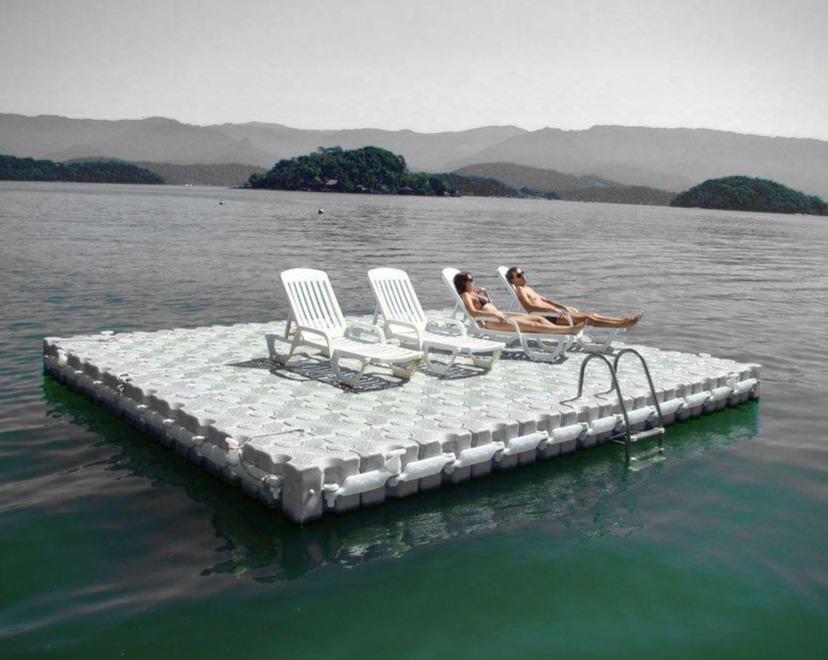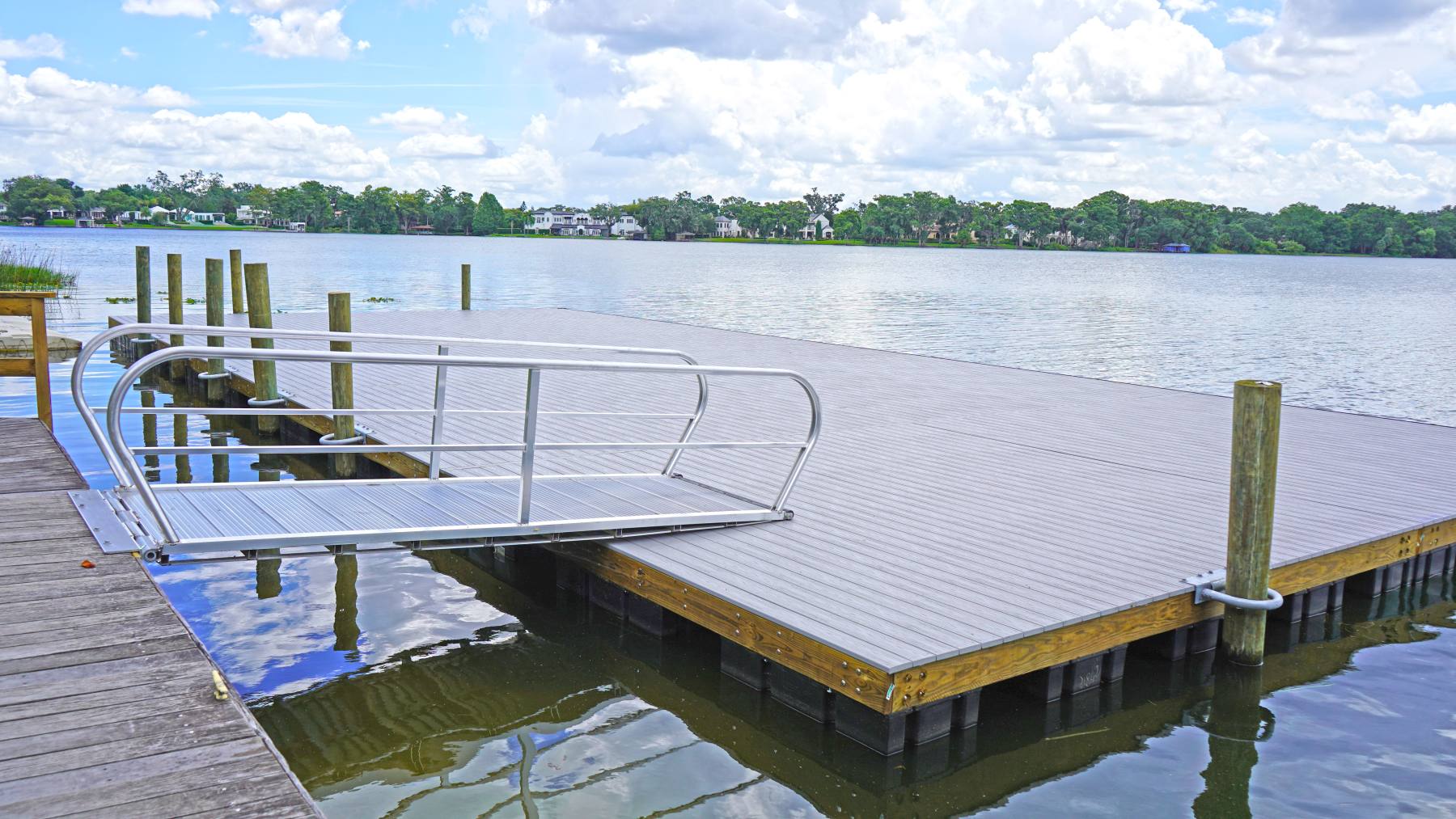The Ultimate Overview to Selecting the very best Floating Docks
Picking the optimal floating dock requires a comprehensive understanding of different components that affect both performance and durability. Factors such as dock types, products, and necessary features dramatically affect your decision-making procedure.
Understanding Floating Dock Kind
When selecting a drifting dock, it is vital to recognize the different kinds available, as each offers distinctive purposes and applications. Floating docks mostly come under three groups: modular, fixed, and pontoon docks.
Modular docks are made up of specific sections that can be easily set up or reconfigured, making them suitable for altering water levels and varied usages, such as business procedures or leisure activities. Their versatility enables personalization based on specific demands.

Pontoon docks are characterized by their resilient structure, commonly composed of numerous pontoons that offer security and support. They are specifically appropriate for bigger vessels and are frequently used in marinas or for waterside homes. Recognizing these types help in selecting one of the most appropriate floating dock to meet certain demands, making sure optimum functionality and safety and security.
Key Materials for Durability
Choosing the right products for floating docks significantly influences their toughness and long life. The most typical products consist of wood, plastic, metal, and composite products, each offering distinct advantages and restrictions.
Timber, usually favored for its aesthetic charm, needs normal upkeep to endure wetness and degeneration. Pressure-treated lumber can boost resistance to rot, yet it may still be at risk to insects and weathering.

Plastic docks, constructed from high-density polyethylene (HDPE), are immune to deterioration, UV radiation, and effect, making them a prominent option for coastal environments. Their lightweight nature additionally promotes very easy installment and moving.
Metal docks, normally constructed from light weight aluminum or galvanized steel, offer remarkable toughness and longevity. They are immune to corrosion, particularly when treated, yet may need additional insulation to stop heat buildup in hot environments.
Composite materials, incorporating wood fibers and plastics, deliver the advantages of both wood and plastic, withstanding moisture and fading while calling for minimal upkeep. - dock company
Eventually, the choice of materials need to line up with ecological conditions, meant usage, and maintenance preferences to ensure the floating dock remains practical and aesthetically pleasing gradually.
Essential Attributes to Consider
While the option of products is essential, thinking about crucial features for floating docks is just as essential to make certain optimal performance and customer complete satisfaction. One crucial feature to examine is the dock's buoyancy ability, which determines just how much weight it can support without submerging. floating dock builder. This is crucial for suiting boats, personal boat, and even leisure tasks
Additionally, mobility is a substantial consideration. Depending upon your demands, you might desire a dock that is easy to disassemble and carry, specifically if you prepare to transfer it seasonally. Security is another vital attribute; a well-designed floating dock should decrease movement brought on by wind and water currents, providing a safe and secure platform for users.
Security functions, such as non-slip surface areas and rounded edges, are likewise essential to avoid accidents, especially in damp problems. Take into consideration the availability of accessories, such as bumpers, ladders, and cleats, which can boost the capability of your dock.
Setup and Maintenance Tips
Setting up and keeping a drifting dock calls for cautious planning and attention to detail to guarantee its long life and optimum performance. Begin by selecting a suitable location that minimizes direct exposure to solid currents and waves, which can cause wear and tear. Ensure that the water deepness suffices for the dock's elevation which it is anchored firmly to avoid activity.
During installment, comply with the supplier's guidelines very closely, as incorrect assembly can endanger security. Usage high-grade materials immune to corrosion, such as light weight aluminum or treated timber, to enhance durability. Regularly check all components, including drifts, connectors, and securing systems, for signs of damage or wear.
Upkeep is essential for extending the life of your dock. Tidy the surfaces occasionally to avoid algae build-up and check for any type of loosened fittings that might require firm. Ensure they continue to be intact and free from punctures if your dock utilizes flotation protection tools. In addition, consider applying safety finishings to wood elements to reduce weathering impacts. By sticking to these setup and upkeep pointers, you can appreciate a dependable and practical floating dock for years to come.
Budgeting for Your Dock
Budgeting for your dock over at this website is a vital action that can dramatically impact your overall contentment and financial investment in a beachfront residential property. Developing a clear budget plan helps you browse the various choices readily available and guarantees you make educated choices that straighten with your financial capabilities.
Begin by establishing the dimension and style of the dock you require, as these factors will substantially affect the expense. Floating docks can differ dramatically in cost, depending upon materials, buoyancy, and attributes like ramps and accessories. Research various suppliers and vendors to compare rates and understand the marketplace value.
Along with initial prices, think about recurring expenses such as maintenance, insurance, and potential repair services. Allot funds for these repeating prices to avoid surprises down the line. It's also prudent to allocate any kind of needed licenses or inspections, which might be needed by neighborhood regulations.
Finally, maintain in mind the potential return on investment. A tactical dock can improve your home's worth and allure, providing a positive monetary influence in the long-term. By budgeting efficiently, you can make sure that your dock fulfills your demands without compromising your financial stability.
Verdict
Finally, picking the ideal floating dock demands a comprehensive assessment of various elements, including dock types, products, essential features, and installation procedures. Focusing on longevity and conformity with local regulations ultimately improves performance and building worth. Mindful factor to consider of monetary article source restrictions will certainly even more make sure an audio financial investment. By adhering to these guidelines, individuals can make educated choices that advertise long-term complete satisfaction and usability in aquatic settings.

While the selection of materials is crucial, thinking about vital attributes for floating docks is equally essential to make certain optimal performance and individual contentment.Establishing up and keeping a floating dock requires cautious preparation and focus to information to ensure its longevity and ideal efficiency. Floating docks can vary considerably in price, depending on materials, buoyancy, and attributes like accessories and ramps.In final thought, picking the excellent floating dock demands a detailed analysis of numerous elements, consisting of a fantastic read dock kinds, products, crucial attributes, and installment processes.